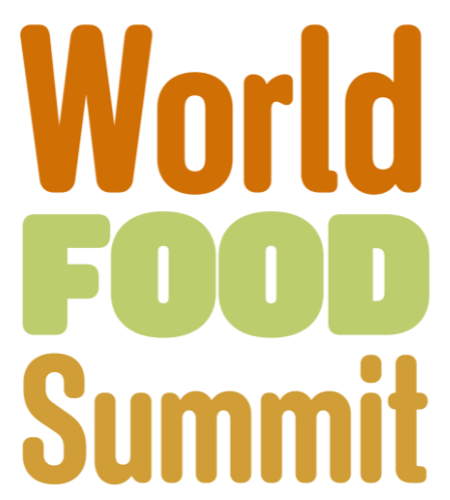
Through an array of engaging side events, the World Food Summit 2021 seeks to bring together policy makers, industry pioneers, and civil society spearheads in order to catalyze knowledge sharing to deliver solutions to drive the sustainable progress.
Requests for inclusion in the list of side events related to the World Food Summit should be forwarded to the secretariat on wfs@fvst.dk, with an indication of the date, venue, title and sponsors or organizers.
Please stay tuned as we update our list of exciting side events.
How can science work as a mediator for cultural change – lessons from Denmark and China on food loss and food waste
The Embassy of the Kingdom of Denmark in Beijing

Date and time
Monday, April 12, 2021
From 9:30 AM - to 12:00 PM (CET)
Contact
Sector Counsellor from the Embassy of Denmark in Beijing, Jeppe Juul Petersen, jeppet@um.dk
Registrate here
****
The Embassy of the Kingdom of Denmark in Beijing organises the webinar in joint collaboration with the Chinese Academy of Agriculture Sciences, University of Copenhagen, One\Third, Food and Agriculture Organization of the United Nations, and World Food Programme
This webinar focuses on new ways to identify key actions in the pathway from a linear to circular approach towards future attitudes to food production. This is done by showing how science and education can mediate for cultural change by highlighting concrete examples from Denmark and China. In addition, the webinar aspires to focus on how multilateral institutions and global society can highlight measures to ensure that adequate and safe food supplies are available for all people, including those living in low and middle-income countries.
The Danish approaches to resource efficient food production and actions to combat food loss and waste have benefitted extensively through the involvement of a wide variety of stakeholders, from enterprises to industry associations, consumers organizations, supervision and management authorities, universities and other research institutions.
Food security is a top priority for the Chinese government though about 25 million tons of crops is annually lost during processing and storage; moreover, 35 million tons of food is wasted on meal tables. China takes waste and reduction food loss very seriously and China's National Plan for the 2030 Agenda emphasize China’s commitment to a 50 % reduction of food loss and waste. Therefore, addressing food loss and food waste is a key way for China to fulfil its international commitment to climate change.
The National People’s Congress (NPC) of the People’s Republic of China issued the first Anti–Food Waste Law (Draft) 23 December 2020. This legislation has put Anti–Food Waste as one of the national priorities,
With the upcoming UN Food Systems Summit 2021, it is the objective of this webinar – in line with the WFS to contribute to achieving the Sustainable Development Goals (SDGs) by 2030.
Speakers:
- Marie Louise Flach de Neergaard, Minister Counsellor for Food, Agriculture, Environment and Water, the Embassy of the Kingdom of Denmark, Beijing
- Carlos Watson, FAO Representative to the People's Republic of China
- Thomas Prehn, One\Third – Denmark’s Think Tank on Prevention of Food Loss and Food Waste, Founding partner at Sidekicker, Member of the Board
- Jeppe Juul Petersen, Sector Counsellor for Food and Agriculture, Embassy of the Kingdom of Denmark in Beijing, the Strategic Sector Cooperation on Recourse Efficiency, Food Loss and Food Waste between Denmark and China
- Cheng Guangyan, Professor, PhD, Director, Center on Animal Food and Nutrition Policy, Chinese Academy of Agriculture Sciences
- Sun Hongnan, Associate Professor, PhD., Institute of Food Science and Technology, Chinese Academy of Agriculture Sciences
- Bent Egeberg Mikkelsen, Professor, PhD. Urban Food Systems Transformation. Founder of Young Minds Foodlab, University of Copenhagen
- Andreas Hansen, Head of Partnerships and Innovation, World Food Programme, Regional Bureau for Eastern Africa
Friday & Foodtures? Young minds solutions to food systems transition challenges
Young Minds Foodlab & University of Copenhagen

Date and time
Monday April 12, 2021
From 12:15 PM to 2.45 PM (CET)
Contact
Bent Egberg Mikkelsen, bemi@ign.ku.dk
Registrate here
****
The need for a rethinking of the food system is more needed than ever. The climate crisis, scarcity of the land, industrialization of agriculture, loss of biodiversity and unsustainable consumption patterns are some of the challenges that society faces. Experts, research and evidence in this field is needed more than ever. But what about young people? We are welcoming a new generation of young people, who want to see climate action. A Generation Z who has increasingly realized that we are dependent on science, research and digital insight. But, that the challenge of experts is that they are most often experts in an “earlier version of society”. The research is by nature retrospective and predominantly works with historical data. It has become most obvious in an area where we all - including young people - can claim to be experts, at least when it comes to suggesting new solutions. It has become clear that young people should have – and want to have - a say when it comes to developing ideas, strategies and solutions to the challenges we face. Science and digital insight at school can be a powerful tool in support of positive change. On the Fridays & Foodtures side event we zoom in on food waste and presents five cases to demonstrate the engagement of young people and showcase their solutions dealing with food systems change.
- 12:15 -12:20. Welcome address: Young people’s solutions & food waste mitigation – what policy makers can do.
- 12:20 – 12.40. Food Systems challenge approaches – how Leeds schools are working with tackling food waste from the classroom, Nathan Atkinson, Rethink Food. Leeds, United Kingdom
- 12:40 – 13:00. SENSE & LEARN 21 - Food waste mitigation as a learning space in a Rio de Janeiro school, Maria Beatriz Bley Martins Costa, Green Rio, Brazil
- 13.00 – 13:20. Are pre-schoolers too young to use Artificial Intelligence in the fight against food waste? Not in the Helsingborg kindergartens, Simon Melin, IT coordinator for pre-schools in the Smart city of Helsingborg, Sweden
- 13:20 – 13:25. Break
- 13:25 – 13:40. Young Food Waste Fighters Club – Insights from STEM and digital learning from the Copenhagen UMAGE challenge 2020. Bent Egberg Mikkelsen, UCPH-IGN, Professor, founder of Young Minds Foodlab, Denmark
- 13:40 – 14.00. Lean Path from Canteen2Classroom – insights from smart data collection for food waste mitigation in French schools, Thomas Candeal, International Food Waste Coalition.org
- 14:00 – 14:20. Co-Create – empowering young people to develop policies to improve food systems. Samantha Nesrallah, EAT Foundation
- 14:20 – 14:45. Panel debate, Moderated by Alessandra, Opponent: Monika Skadborg, chairman of the Danish Youth Climate Council
Chair: Alessandra Pereira, Assoc. Professor. UniRio, Member of SELEA network Co-chairs: Mukti Ram Chapagain, Co-founder of Young Minds Lab, Giselle Mesiara, Independent Researcher, SELEA Brazil
Host: Bent Egberg Mikkelsen, Professor, PhD, Dept of Geosciences & Natural Resource Management, University of Copenhagen.
Co-chair: Mukti Ram Chapagain, Co-founder of Young Minds Lab (YouMiLa.dk)
For more, see here
Urban food and farming – part of a green future for cities?
University of Copenhagen
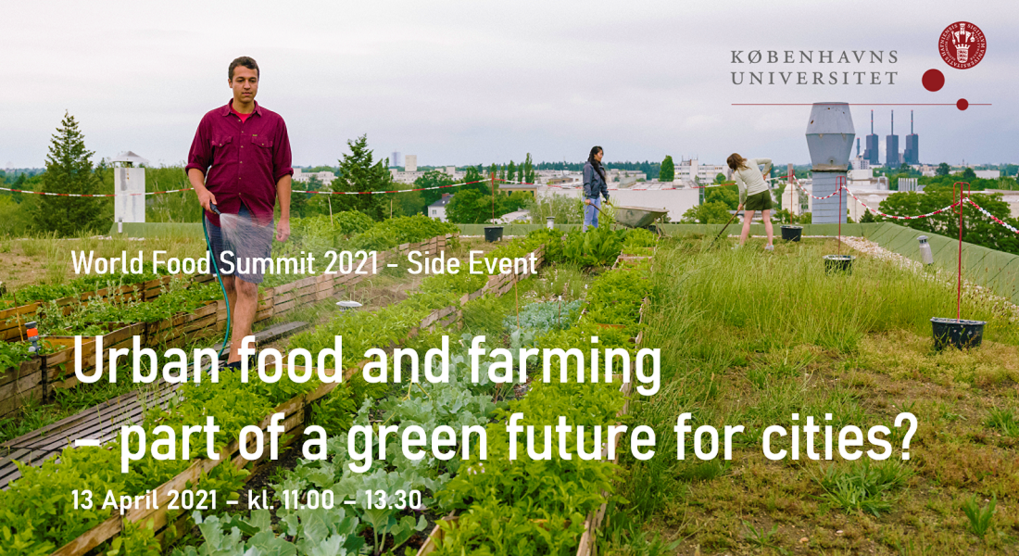
Date and time
Tuesday, April 13, 2021
From 11:00 AM to 1:30 PM (CET)
Registrate here
****
For decades, urbanisation has been a mega trend, and now more than half of the world’s population lives in towns and cities. Feeding this increasing urban population with fresh, healthy and sustainable produced food will require a huge transition of our existing food systems. What are the biggest challenges in this transition? What kind of food systems and management do we need? And can the cities and their citizens be key players in the solution?
Since 2017, a group of researchers at University of Copenhagen has focused on urban food and farming, and to them many solutions to future resource challenges lie in the reassessment of elements of our food production, and urban farming and urban food systems can help solve some of our challenges.
At this side event, you can meet six of these researchers and discuss their research and the perspectives that lie within it
Urban Food and Farming
-
Urban cultivation – between urban management, alternative practices and green cities, Trine Agervig Carstensen, Professor UCPH-IGN
-
How can urban farming be a meaningful part of socially and ecological just urban futures? Rebecca Leigh Rutt, assistant professor, UCPH-IFRO
-
Urban and vertical farming systems and food quality, Kristian Holst Laursen, Assistant Professor, UCPH-PLEN
-
The role of city-regions in transforming the food system, Marin Lysák, Post doc UCPH-PLEN
-
Growing communities, growing young people - Insights from the SESAM 2020 program, Bent Egberg Mikkelsen, Professor UCPH-IGN
The role of urban farming in climate adaptation, Jakob Magid, Associate professor, UCPH-PLEN
Moderator: Marie-Louise Boisen Lendal, CEO and founder, Think Tank Frej
Mission-oriented innovation towards better health and diets – the role of public meals as a driver of change: A Nordic perspective on pathways toward sustainable food system transformation
EIT Climate KIC, University of Copenhagen and Lund University

Date and time
Wednesday April 14, 2021
From 10:00 to 16:00 (CET)
Contact
Henrik Søndergaard, henrik.sondergaard@food.lth.se
Registrate here
****
EIT Climate-KIC, in collaboration with its community members Lund University and the University of Copenhagen, will organise an official side event at the World Food Summit, presenting speakers from the EU Mission Board, WHO, OECD OPSI, EAT Foundation, Vinnova and the MIT Innovation Initiative, as well as insights from Nordic case studies and academic perspectives on capacity building and data as the fuel for food systems transformation.
Mission-oriented innovation towards better health and diets – the role of public meals as a driver of change
A Nordic perspective on pathways toward sustainable food system transformation
The side event will provide inspiration on how public meals can be a deliberate transformation vehicle and describes pathways for the future work and desired development of a ’Mission towards better health and diets’.
It will offer:
-
A workshop to co-create and catalyse actions into a catalogue of recommendations and actions for future ecosystem engagement regarding mission-oriented innovation within the food system.
Enhanced insights to selecting, funding and governing mission-oriented innovation towards food system transformation, highlighting how public meals in the Nordics can be used as a lever for systemic change.
It is expected that the findings will be published and made available after the session.
Independent Food System Dialogue: Game changers to tackle the food loss and waste challenge
ONE\THIRD - Think Tank on Prevention of Food Loss and Food Waste

Date and time
Wednesday April 14, 2021
From 3:00 PM to 5:00 PM (CET)
Contact
Anne Lerche, Head of Secretariat to ONE\THIRD to learn more about this side event: anler@fvm.dk
By invitation only.
****
Lesser food loss and waste should be part of the solution in the green transition and restoration during and after the COVID-19 pandemic towards a more sustainable transformation of the worlds’ food systems.
This independent food system dialogue aims to showcase game changing solutions with a scalable potential and recommend actions that can accelerate sustainable food system change.
The following themes will be addressed in 6 breakout tracks:
- Public Private Partnerships
- Food Loss and Waste as business case
- Consumers and civil society’s role
- International partnerships and capacity building
- Technology, science and activation of youth
- Finance as a driver
Hosted by food system champion Flemming Besenbacher
FoodData4Good: How open & digital data can support food systems transformation
FoodData4Good Think Tank & University of Copenhagen
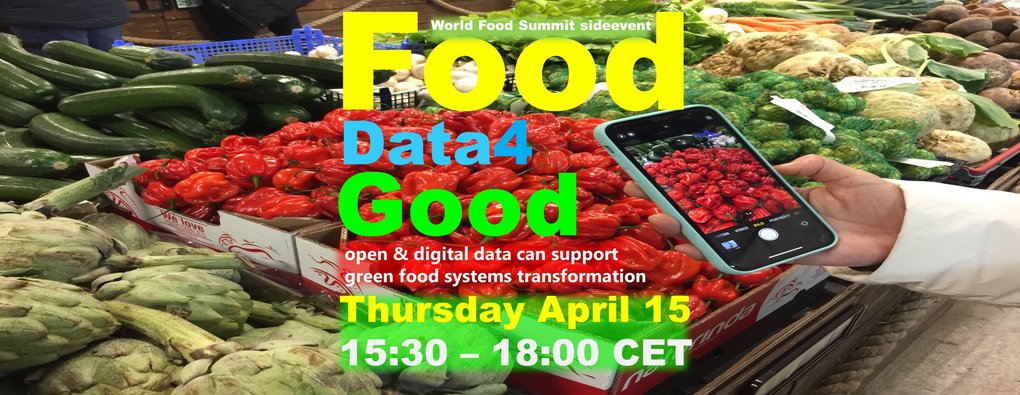
Date and time
Thursday April 15
From 3:30 PM to 6:00 PM(CET)
Contact
Bent Egberg Mikkelsen, bemi@ign.ku.dk
Register here
****
Can you imagine getting real time information and decision support why while you are shopping for food? For instance to be better prepared for making climate friendly food choices? And have you ever been dreaming about get online info about the expiry date of the foods in your fridge at home? Open data, data science and digital technologies has opened a whole new world of opportunities. Health science has already come along way with the Data for Good foundation. Why not do the same in the food domain? Analyze consumption patterns for better food systems resilience. Provide consumer feed back using digital consumption data. Minimize food waste with better datainsight? And may even predict consumption patterns with AI and ML? Of course all data needs to comply with high standards and regulations on privacy. And we need serious discussions on benefits and duties in relation to data ownership. Join us for the first FoodData4Good webinar – a side event for the Word Food Summit.
- 15:30 – 15:40. The Post Covid Era. Doing good as a new beginning? Let’s start with open data, data sharing & artificial intelligence, Ida Auken, Member of Parliament
- 15:40 – 16:00. Health data for the common good – lessons learning from the Data for Good movement, Annemette Broch, founder of Data for Good Foundation
- 16:00 – 16:20. Sharing of agricultural data – what we know from AgriDataShare. Simone van der Burg, Senior Researcher, Wageningen Agricultural Research
- 16:20 – 16:40. AI for food – how consumer data can create new insight in consumer food choice, Thomas Damkjær, President, Danish Society of Engineers (IDA), Denmark
- 16:40 – 16:50 BREAK & poll
- 16:50 – 17:05. How open are open food data and how smart is the new 2 barcode? Mads Kibsgaard; Standard & Relations Manager, GS1 Denmark
- 17:05 – 17:20. Surfing around in Open Data? Insights from the Smart Urban & Regional Fooddata (SURF) study, Bent Egberg Mikkelsen, Professor, PhD, Dept of Geosciences & Natural Resource Management, University of Copenhagen, Board member in Food, Nutrition & Health Research Infrastructure Foundation (FNHRI).
- 17:20 – 17:40. Going Locard in Helsinki? Results from the Finnish Loyalty Card study, Mikael Fogelholm, Professor, University of Helsinki
- 17:40 – 18:00. Round Table – Is AI and fair Data sharing going to be the new black in building ore resilience and sustainability into future food systems, Chaired by Sandra Caldeira, Deputy Head of Unit Health in Society at European Commission. The round table will also revisit
Moderator: Sandra Caldeira, Deputy Head of Unit Health in Society at European Commission
Poll & chatbox moderator: Mukti Ram Chapagain, Co-founder of Young Minds Lab.
For speakers, see more here
Farmers as Agents of Change in Greening Agriculture: Challenges & Opportunities
FAO North America and the Royal Embassy of Denmark

Date and time
Thursday April 15, 2021
From 4:00 PM to 5:30 PM (CET)
Register here
****
Join us for a high-level webinar cohosted by the Food and Agriculture Organization of the United Nations and the Embassy of Denmark in Washington, DC to learn about the challenges and opportunities facing farmers in ushering in a green transition towards more sustainable agriculture and food production.
The foundations of our food systems are being undermined, often, at least in part, because of the impact of management practices and land-use changes associated with food and agriculture. We are witnessing immense and in some cases irreversible biodiversity loss in countries around the world. This alarming trend, combined with rapidly advancing climate change, as well as water scarcity and the loss or degradation of other vital natural resources, underscores the urgent need to transition to more sustainable agricultural practices and approaches.
Agricultural research, innovation, new technology and the use of other sources of knowledge in agricultural production systems — geared towards greener growth in agriculture - is the need of the hour. The challenges posed by climate change to agriculture and food security require a holistic and strategic approach, one that links knowledge with action across the climate, agriculture and food security communities.
There is growing consensus that greening agriculture will require new science, as well as new and improved management policies and practices. However, scant attention is typically paid to farmers and their enormous capacity to serve as agents of change in leading such a shift towards greener, more sustainable agriculture. With the right policies and conditions, farmers can play a lead role transforming agricultural practices. This high-level webinar will examine these pressing issues, highlighting experiences from Denmark and California, as well as global perspectives.
Welcome
- Vimlendra Sharan, Director, FAO North America
Keynote speakers
- Søren Søndergaard, Chairman, Danish Agriculture and Food Council
- Karen Ross, Secretary, Department of Food and Agriculture, California
Featured Speakers
- Anders Nørgaard, Dairy producer and Vice-Chairman, Holstebro-Struer Landboforening
- Zitouni Ould-Dada, Deputy Director, Climate and Environment Division, FAO
- Martien Van Nieuwkoop, Global Director, Agriculture and Food, World Bank
- Additional speakers to be added.
Moderator: Troels Mandel Vensild, Minister Counselor – Food, Ag and Fisheries, Embassy of Denmark in Washington, DC
Share and join the conversation on Twitter using #GreeningAgriculture.
Short-cuts to a healthy and sustainable diet and reduced use of antibiotics by use of microbial solutions and upcycling of food processing side-streams
Facilitator: Lene Lange Host: Chr Hansen
DATE / TIME: MONDAY 19.04 at 10-11.30am
REGISTRATION: here
LINK FOR PARTICIPATION: To be communicated to participants ahead of the meeting
INTRODUCTION
Globally one third of all food produced is wasted. On top of that, we downgrade food processing side-streams, which by current bioprocessing technology could have been developed into more food and feed. Meaning that waste is significantly higher than one third! A significant part of such side-stream resources is recalcitrant plant cell wall materials, which by fermentation or enzyme treatment can be opened, breaking the recalcitrance, hereby making the side-stream resource accessible for people and one stomach animals. Interestingly, minute pieces of especially pectin and hemicellulose fibers have been shown to have potential for giving a prebiotic effect, strengthening the good part of the gut microbiome, and inhibiting the unhealthy part. Furthermore, fermented plant (fungal and seaweed) materials can hold interesting metabolites with anti-inflammatory and immunomodulating effects. All in all, opening for developing gut-healthy food and feed. Using such types of feed have been shown to have potential for significantly reducing the need for antibiotic flock treatments among pigs; most likely similarly for poultry and aquafarming of fish. The presentations in this side-event will provide basis for concluding that gut healthy feed has potential to lead to reduction in need for antibiotics in industrial meat production, and similarly provide for affordable gut-healthy diet to people.
PROGRAM (10.00-11.30)
- Lene Lange, Professor (f), Director, “BioEconomy, Research & Advisory”: Upcycling of food processing side-streams, a short-cut to a healthy diet and reduced use of antibiotics (at 10.00)
- Wieke Huizing Edinger, EU Public Affairs Manager, Chr Hansen: How innovative biosolutions can help address tomorrow’s challenges (at 10.15)
- Jens Legarth, Director, Fermentation Experts: Gut-healthy feed from fermented side-streams can substitute for zinck (and antibiotics?) (at 10.30)
- Anne Meyer, Professor, Technical University of Denmark: Promising bioprocessing technologies for upgrade of side-streams to gut-healthy food and feed ingredients (at 10.45)
- Matt Orlando, Head Chef and Owner, Amass Restaurant: Matt Orlando and Amass Restaurant is the perfect showcase for how environmental responsibility can be achieved without compromising on flavor and deliciousness (at 11.00)
- Discussion, based on questions raised in the Chat and questions between the five panelists (11.15-11.30)


![]()
![]()
![]()
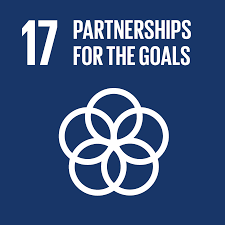
Right2Grow: Empowering communities to improve nutrition and WASH services
Right2Grow
Date and time
Wednesday April 21, 2021
From 1:00 PM (CET)
Register here
****
Getting to zero undernutrition and zero people without access to basic WASH! This is the Right2Grow partnership’s goal: well-nourished children that grow up in resilient and inclusive communities, despite COVID-19 and climate change. In this session the Right2Grow team will take you along on its journey to build a locally led global movement. The multidisciplinary panel will showcase you how sustainable progress can be achieved by strengthening local communities and building cross-sectoral partnerships that connect the local to the global level. We present a people-centered approach that brings in and amplifies local voices in national and global dialogues. This session will challenge you to look at sustainable food system through another lens: what is the game changing potential of putting communities in the lead to instigate and achieve long lasting change at the global level? Right2Grow invites you to join us in exploring challenges and opportunities!
Program
- Welcome and Introduction
George Ouma, Regional Advocacy & Communication Specialist (Horn and Eastern Africa) at Action Against Hunger - The Right to Food and Budget Advocacy
Agnes Kirabo, Executive Director of the Food Rights Alliance - Citizen Action and Social Accountability
Alice Yayeri Nakku, Right2Grow Project Coordinator at World Vision Uganda
Wako Debelle Jebessa, Program and Social Accountability Specialist at World Vision Ethiopia
Linking Technological and Social Innovation towards a transition to sustainable FOOD
Roskilde University, Department of Social Sciences and Business
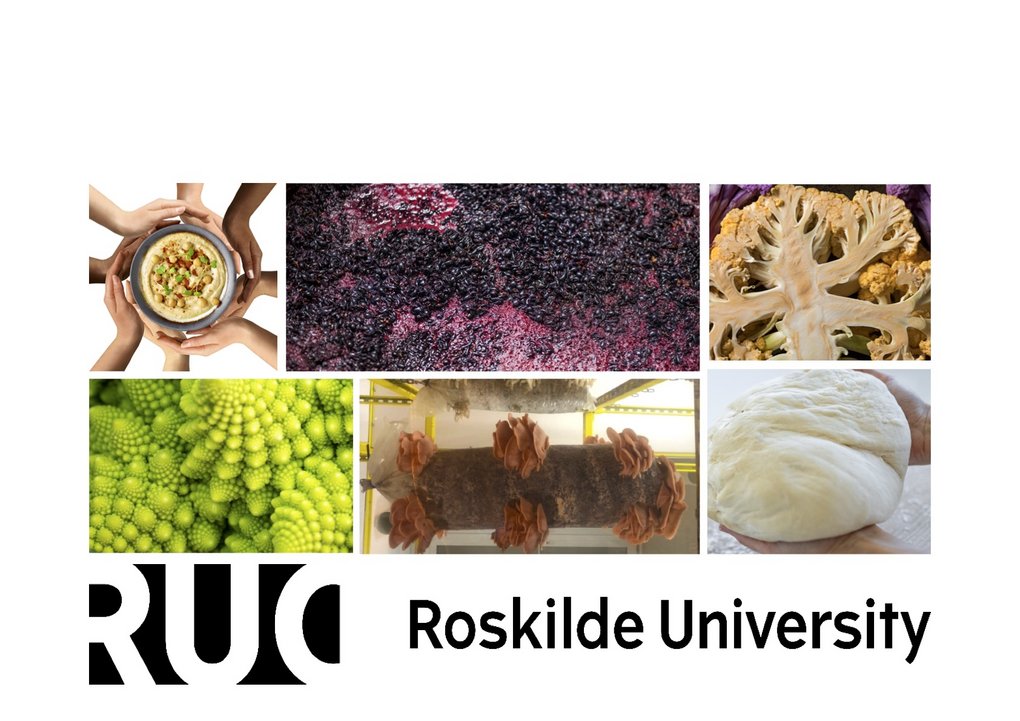
Date and time
Friday April 23, 2021
From 1:00 PM to 3.00 PM (CET)
Contact
Sevasti (Sevie) Chatzopoulou, seva@ruc.dk
Register here
****
Food is more than production of nutrition. Food represents socio-cultural, environmental and economic dimensions that transcend peoples’ heritage and history, culinary traditions and identity. Food is linked to our health and well-being and has a tremendous connecting power to bring together people of various ages, ethnic, religious and social backgrounds. Food initiatives can enforce change, integrate new and old technological innovations, and enable new gastronomic experiences and habits beyond urban elitist paradigms that can create solutions for the emerging environmental challenges, e.g. reducing food waste and loss. Moreover, these initiatives construct social communities through learning and coordination processes, creating new norms and practices enhancing transitions towards sustainable food systems.
Industrialised farming practices have caused widespread degradation of natural capital and negative environmental externalities across the food value chain. We need to reconsider our food production practices in order to address the emerging challenges and risks, exploit new opportunities and identify new mechanisms that can guide and enable sustainable transformations in our food systems.
These transformations can be supported by new governance models for food that a. transcend and dissolve hierarchies, territories and policy sectors; b. move beyond a compartmentalised approach of the agri-food value chain and support new forms of coordination and synergy building between public and private; c. connecting the global to the local; and, build on expertise knowledge, technological and social innovation, connecting the environment, the economy and the society.
The webinar on Technology and social innovation towards a transition to sustainable FOOD aims to address some of these aspects by bringing together the following speakers:
Featured Speakers (confirmed):
- Thanos Feskos (Topic TBC). Assistant Head Chef at restaurant Geranium in Copenhagen, Denmark (2015-2020). Head Chef at Restaurant Delta in Athens, Greece
- George Papazaxarias (Topic TBC). R&D Chef at restaurant Under in Norway (2016-2020). R&D Chef at restaurant Delta in Athens, Greece
- Mariana Kavroulaki : Food Innovations and their impact on ancient Greek and Byzantine society. Experimental Archaeologist- Food Historian, Conference Founder & Organizer. Winner of the 2012 Gourmand World Cookbook Award (category: Food Literature) for her book "The language of taste". Founder of Greek Culinary History & Cooking Adventures, Experimental, Sensory, and Public Food – Archaeology. Founder and organizer of the Symposia of Greek Gastronomy, . (www.greekgastronomy.wordpress.com). Founding member and Secretary of the Board of the Carob of Crete (Society the Cultivation of Natural and Cultural Development of the Carob Tree in Crete)
- Dr. Allison Loconto: Social innovations for sustainable food system transformation: Local experiences from around the world. Deputy Director, Interdisciplinary Laboratory for Science, Innovation and Society (LISIS), University of Gustave Eiffel. Researcher, French National Research Institute for Agriculture, Food and Environment (INRAE). Sustainable Trade and Innovations Expert, Food and Agriculture Organization of the United Nations (FAO)
Wieke Huizing Edinger: Fermentation – How an ancient technique brings innovative solutions to global challenges. EU public affairs manager at Chr. Hansen, Ph.D
Chair: Sevasti (Sevie) Chatzopoulou, Associate Professor, Department of Social Science and Business, Roskilde University

